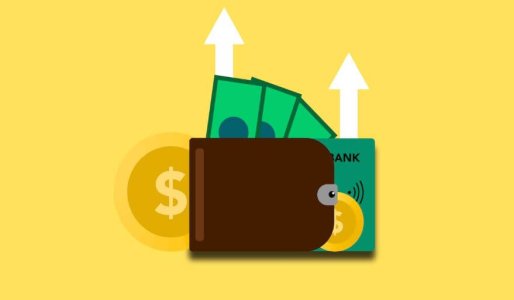This bank retrieved over $146,000 for a couple scammed by a 'slick professional'
- Replies 7
When it comes to our money, it can be easy to fall victim to a scam if the perpetrators of it are slick and ‘professional’.
Unfortunately, this is the situation that Anita and Thomas Jacobsen from Toowoomba, Queensland found themselves in.
The Jacobsens had been researching financial institutions for the best deposit rate to invest their $146,000 savings into when they got a call from a man with a British accent claiming to be from a well-known Australian bank.
He promised them a juicy four per cent rate for six months – enough to settle comfortably into retirement.
Mr Jacobsen shared that he spoke to the man’s alleged colleague a few days later and received paperwork with the bank’s header. He transferred their life savings to the account provided shortly after.
The Bank of Queensland’s Financial Crimes Team called Mr Jacobsen two days later to tell him that he had been scammed.
‘I considered myself to be reasonably aware when doing business transactions and I just feel sorry for anyone else who has been caught up in this,’ Mr Jacobsen told reporters.
He added: ‘Our working days are over. We’ve worked hard for this money, paid tax on it, it’s all self-funded and we were told we had no chance of recovering it.’
Luckily, the Bank of Queensland came to their rescue and managed to reclaim the Jacobsen’s money.
When the transaction was made, the bank immediately placed the couple’s funds on hold and was flagged as ‘potentially suspicious’. Then, it worked with the other bank involved to return the money to the grateful (and very relieved) pair.
However, bank officials warned that this happy ending is not usually the case for most scammed victims.
Bank of Queensland’s Customer Advocate Ben Griffin warned: ‘In most cases when the money leaves your account it can be very difficult to recover, and it’s very common for scammers to transfer funds offshore into cryptocurrency.’ He added that this makes it ‘virtually impossible’ to recover the lost funds.
Mr Griffin said the Jacobsens fell victim to a ‘very professional and polished investment scam’, and hoped their story would serve as a cautionary tale for others.
This incident also prompted the bank to issue a nationwide warning to their customers about the rise in imposter bond investment offers, specifically scammers claiming to be selling term deposits of 3.75 to 6.25 per cent with an investor deadline of January 30, 2023.
‘The imposter reportedly initiates and maintains contact with interested parties, sometimes over an extended period of time,’ the warning said.
The bank added that during this time, the scammers might provide application instructions, maturity dates, investment thresholds, and other specific details surrounding ‘possible investment options’.
Some signs to look out for included unrealistically high returns or bonds which seemed ‘too good to be true’ and consistent pressure to invest due to the ‘risk of missing out’.
Additionally, customers should look out for professional-looking forms or catalogues with ‘lookalike email addresses’, non-genuine phone numbers, unusual requests for personal information, and most importantly, being asked to pay funds directly into a bank account.
The ACCC advised people to never transfer money to an account owned by someone they don’t know and to never give their credit card or online account details over the phone unless the number is a confirmed trusted source.
‘Never respond to emails or phone calls from someone claiming to be your bank and asking for account details,’ the ACCC shared on their website.
The ACCC also warned that genuine banks or financial institutions would never do this. ‘This is what scammers do to steal your identity and your money,’ it said.
To avoid falling victim to similar schemes, delete any emails claiming to be from the bank asking you for your account details. Don’t click on any links that could activate malicious software designed to harvest your data or personal details. Alternatively, you can also report the email to the bank for assistance.
If you get a suspicious call offering you deals that are ‘too good to be true’, ask for their name and number and tell them you’ll call them back later. Afterwards, contact your bank using their official telephone number (you can see this on the bank’s official website), and report the scammer.
Additionally, you can also contact the ACCC here to report a scam.
 We hope you never have to go through anything like that, but, as always, if anything seems suspicious it is best to contact your local bank and/or report it to your local police immediately.
We hope you never have to go through anything like that, but, as always, if anything seems suspicious it is best to contact your local bank and/or report it to your local police immediately.
Unfortunately, this is the situation that Anita and Thomas Jacobsen from Toowoomba, Queensland found themselves in.
The Jacobsens had been researching financial institutions for the best deposit rate to invest their $146,000 savings into when they got a call from a man with a British accent claiming to be from a well-known Australian bank.
He promised them a juicy four per cent rate for six months – enough to settle comfortably into retirement.
Mr Jacobsen shared that he spoke to the man’s alleged colleague a few days later and received paperwork with the bank’s header. He transferred their life savings to the account provided shortly after.
The Bank of Queensland’s Financial Crimes Team called Mr Jacobsen two days later to tell him that he had been scammed.
‘I considered myself to be reasonably aware when doing business transactions and I just feel sorry for anyone else who has been caught up in this,’ Mr Jacobsen told reporters.
He added: ‘Our working days are over. We’ve worked hard for this money, paid tax on it, it’s all self-funded and we were told we had no chance of recovering it.’
Luckily, the Bank of Queensland came to their rescue and managed to reclaim the Jacobsen’s money.
When the transaction was made, the bank immediately placed the couple’s funds on hold and was flagged as ‘potentially suspicious’. Then, it worked with the other bank involved to return the money to the grateful (and very relieved) pair.
However, bank officials warned that this happy ending is not usually the case for most scammed victims.
Bank of Queensland’s Customer Advocate Ben Griffin warned: ‘In most cases when the money leaves your account it can be very difficult to recover, and it’s very common for scammers to transfer funds offshore into cryptocurrency.’ He added that this makes it ‘virtually impossible’ to recover the lost funds.
Mr Griffin said the Jacobsens fell victim to a ‘very professional and polished investment scam’, and hoped their story would serve as a cautionary tale for others.
This incident also prompted the bank to issue a nationwide warning to their customers about the rise in imposter bond investment offers, specifically scammers claiming to be selling term deposits of 3.75 to 6.25 per cent with an investor deadline of January 30, 2023.
‘The imposter reportedly initiates and maintains contact with interested parties, sometimes over an extended period of time,’ the warning said.
The bank added that during this time, the scammers might provide application instructions, maturity dates, investment thresholds, and other specific details surrounding ‘possible investment options’.
Some signs to look out for included unrealistically high returns or bonds which seemed ‘too good to be true’ and consistent pressure to invest due to the ‘risk of missing out’.
Additionally, customers should look out for professional-looking forms or catalogues with ‘lookalike email addresses’, non-genuine phone numbers, unusual requests for personal information, and most importantly, being asked to pay funds directly into a bank account.
The ACCC advised people to never transfer money to an account owned by someone they don’t know and to never give their credit card or online account details over the phone unless the number is a confirmed trusted source.
‘Never respond to emails or phone calls from someone claiming to be your bank and asking for account details,’ the ACCC shared on their website.
The ACCC also warned that genuine banks or financial institutions would never do this. ‘This is what scammers do to steal your identity and your money,’ it said.
To avoid falling victim to similar schemes, delete any emails claiming to be from the bank asking you for your account details. Don’t click on any links that could activate malicious software designed to harvest your data or personal details. Alternatively, you can also report the email to the bank for assistance.
If you get a suspicious call offering you deals that are ‘too good to be true’, ask for their name and number and tell them you’ll call them back later. Afterwards, contact your bank using their official telephone number (you can see this on the bank’s official website), and report the scammer.
Additionally, you can also contact the ACCC here to report a scam.
Key Takeaways
- An elderly retired couple from Queensland, Anita and Thomas Jacobsen, fell victim to a 'slick professional' scam and were scammed of their hard-earned savings.
- Bank of Queensland was able to place the funds on hold and worked with the other bank involved to return the money to the very grateful and relieved couple.
- Bank officials warned that usually the money that leaves the account can be very difficult to recover and scammers often transfer funds offshore into cryptocurrency.
- The ACCC advises to never transfer money to an account owned by people you don't know, give out your personal, credit card or online account details over the phone, and immediately delete emails claiming to be from a bank asking for account details.










